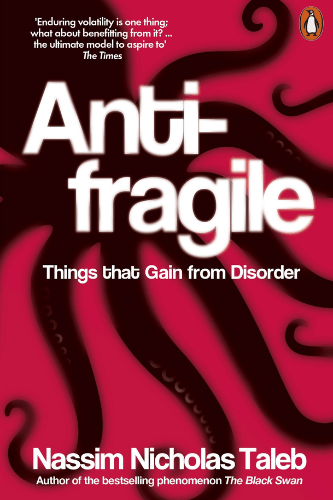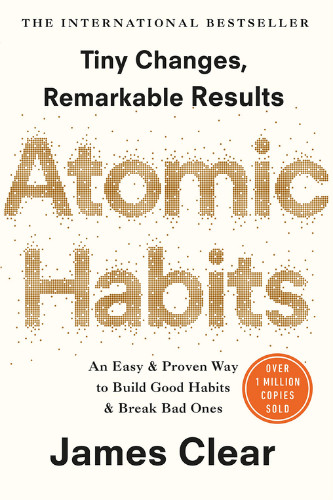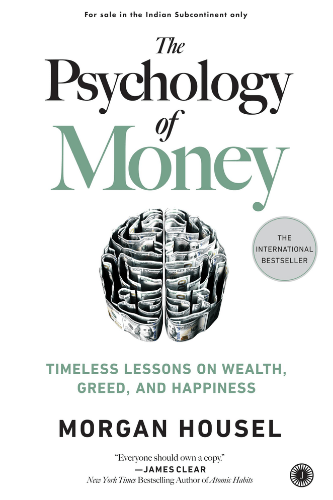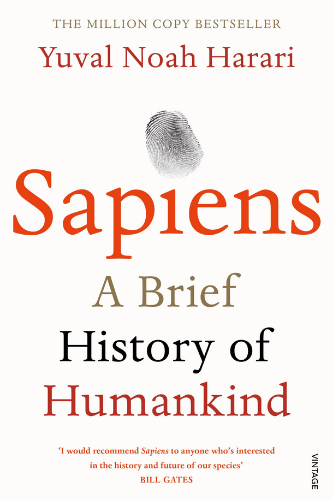| Book | Antifragile Pdf |
| Author | Nassim Nicholas Taleb |
| Page | 544 |
| Language | English |
Summary of Antifragile and Pdf Download
Improving the antifragility of the system
Most individuals consider “robust” or any other term with a resilience connotation to be the polar opposite of “fragile.” Resilient things, on the other hand, do not improve over time. There are no sufficient words to explain the antonym of fragile; the best that can be stated is “unharmed.” For the sake of clarity, “antifragile” will suffice. The antifragile thrives on uncertainty and unpredictability and even gains from disturbance. Someone or anything antifragile is more likely to gain from an unexpected occurrence or shock than to be harmed. Fragility is the polar opposite of antifragility.
The Hydra, a Greek mythological multi-headed monster, is a great example. The total number of heads would be three if one of the heads were removed and replaced. Antifragility refers to the ability to withstand and thrive in the face of adversity. Mithridates, a historical emperor who resisted murder by swallowing increasing doses of poison, is another example that takes us closer to understanding antifragility. We may be able to grasp the concept of antifragility with this information. Vaccination is based on this basic concept. To evolve and thrive, certain systems need a certain degree of stress.
Reduced exposure to volatility, unpredictability, and pressures would do more harm than good since antifragility is a trait of all-natural and complex systems that have endured the test of time. These institutions are more likely to collapse if they cannot deal with volatility and unpredictability. Lack of stimulation may cause complex systems to collapse.
As soon as possible, get out of justice.
To come up with new ideas, you must first face challenges. Innovation is sparked by overcompensation or the additional energy generated as a consequence of responding to a setback. In the arena, pitting a horse against a dangerous opponent is equivalent to making a horse want to go faster. Overcompensation results in a greater capacity in all systems, which is favorable to the system’s long-term survival. Overcompensation is the system’s response to the worst-case situation in nature, rather than risk analysts finding out how to survive a similar catastrophic incident in the past.
The danger is reduced when more information is supplied. It thrives on the attempts of others to harm it. Consider how a huge organization or government would try to “re-instill faith” in its population after a disaster. The minute you hear such a remark, you know they’re doomed. There is no turning back now that the data has been made public.
The challenges that the world faces strengthen it. Antifragility is a concept that may be applied to daily life. If your stress levels exceed a specific threshold, you will likely die. Non-living or biological things, such as glass, fracture when pressed under pressure. Humans seem to profit the most from acute shocks that work as messengers, particularly if ample time is allowed for recovery. Lengthy-term stresses are difficult for individuals, such as a demanding boss, intricate tax concerns, or long commutes to work. Because information reaches the system’s component constituents via stress, a certain amount of stress may be beneficial in complex systems.
However, in the mistaken notion that doing so would make ourselves or society stronger, the modern way of life tries to eliminate as many stressors as possible. On the other hand, individuals and communities aren’t like broken washing machines that can be fixed with a little elbow grease. In reality, we get weaker if we do not put ourselves under significant effort regularly. Living things need a certain level of chaos and surprise in their surroundings to live.
Infrastructure and evolution
Stress, ambiguity, and uncertainty are all things that evolution relishes; in fact, it thrives on them. Even if a single person’s struggles weaken them, the gene pool benefits from their efforts. Consequently, nature would not waste time or energy trying to keep everyone alive so that the economy and institutions could continue to exist. To some degree, this is correct: even the hardiest species would die in a global catastrophe that wiped out all life. Evolution occurs when the death of a single person is advantageous to the species’ overall survival.
However, this has the problem of benefiting the rest of us at the expense of those who have been victims of mistakes or natural disasters. However, if the Titanic accident had not happened, we would have proceeded to build bigger and larger ships, resulting in even more deaths.
Smaller species have a role in evolution, and our body’s cells, among other things, fight for existence. The economy’s tiered structure includes individuals, small companies, divisions within larger firms, industries, regional economies, and the global economy. For the economy to be resilient and grow, individual businesses must be weak and prone to failure. Malnutrition prevention, social support, and, most importantly, treating the most vulnerable with dignity may all assist in lessening the repercussions for those most susceptible. Government bailouts, on the other hand, are the polar opposite of responsible gambling since they protect people who cannot manage risk. It would be wonderful to devise a system in which one firm’s failure does not affect others’ success.
When faced with a flock of Black Swans
Most historical events are caused by “Black Swans,” large-scale, irregular, and unexpected occurrences with tremendous ramifications. Such events are beneficial to history, technology, and knowledge. We may imagine that we were able to forecast these “Black Swans” to make history seem more linear, but this diminishes the role of chance in the universe. Even though some say that we are getting better at anticipating and foreseeing these events and that, as a result, they are becoming more common. Dealing with Black Swan circumstances gets easier if we have a better knowledge of antifragility.
We can’t forecast whether or not a certain shock or event will occur, but we can determine which things or structures are more vulnerable to harm than others if it does. Instead of dangers, it’s time to speak about fragility, which refers to anything or any system vulnerable to factors such as volatility and unpredictability.
Consider the term “fragility,” a group of people who believe there is no such thing as the unknown, overstate what scientific study can reveal, and pride themselves on being “reasonable.” Medical fragility rejects the body’s capacity to heal itself. At the same time, policy fragility perceives the economy as a machine that can be “fixed,” and financial fragility imposes risk models on the banking system that finally lead to its destruction.
Denial of the truth as well as change
A “Black Swan” event may wipe away the salaries of dentists and taxi drivers, although such occurrences are infrequent in both professions. On the other hand, workers are not exposed to such uncertainty, yet a single phone call to HR might lead to their termination. Employees’ errors become part of their permanent employment record, but self-employed people learn from them and may apply what they’ve learned to new circumstances.
The term “volatility” derives from Volare, which means “to fly,” according to the Oxford English Dictionary. We impede political and other systems from attaining their full potential when we attempt to interfere in them wrongly and eliminate their natural instability.
Levant and the national state are partners.
Traders governed the northern Levant for thousands of years, a territory roughly corresponding to what is now northern Syria and northern Lebanon. As a consequence of the two World Wars, the area was partitioned into Syria and Lebanon. Syria’s Baathists took control decades later and launched a “modernization” effort immediately. The concentration of authority, the implementation of statist laws, and the replacement of traditional souks (markets) with modern office complexes were all part of this approach. Due to wealthy trading families relocating to New York and California, cities like Aleppo saw a dramatic fall. On the other hand, Lebanon’s failure to prevent rival militias from arming themselves was a major factor in the country’s eventual civil war.
While nation governments existed in the past, such as ancient Egypt’s, empires such as the Roman and Ottoman-ruled over the bulk of human history; an empire must provide possibilities for local elites to profit while keeping some effective local autonomy to succeed. Small counties and city-states often fought throughout Europe even before Germany and Italy became countries. This was true even before the independent nations of Germany and Italy were created. While the existing arrangement of nation-states may result in fewer violent wars, they are much more devastating when they do occur. Decentralized confederations with selected leaders have higher stability over time than naturally centralized confederations.
randomness rules
Minor forest fires help cleanse volatile components from the system. Therefore variety may operate as a purge. In the same way, the longer a financial market goes without a crisis, the more severe the ramifications will be when one occurs. A little chaos here and there is beneficial to the system.
Consequently, when the system is designed to be inherently unstable and unpredictable, the shock of an inevitable occurrence is amplified since there are no substantial risks to warn the system about. Before the 2011 Egyptian protests, the US gave financial and diplomatic support to Egypt’s leadership to “avert unrest.” The reduction in background noise aggravated the fundamental problem.







